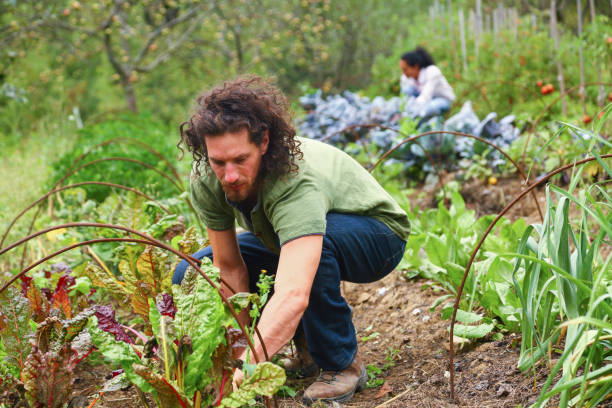The Resurgence of Homesteading: A Modern Response to Societal Complexity
In our increasingly complex, technology-driven world, a growing number of individuals are embracing the simpler, self-reliant lifestyle of homesteading. This return to the land signifies a larger societal shift. Read below to understand this movement more deeply and its implications for our modern society.

The Roots of Homesteading
Homesteading, a lifestyle centered around self-sufficiency, has roots in the 19th-century American West. It was initially promoted by the Homestead Act of 1862, which sought to populate the western territories by granting settlers land in exchange for improving it. The practice waned in the 20th century as urbanization and industrialization took hold. However, recent years have seen a resurgence, albeit in a different form, as people seek a sense of control and simplicity in an increasingly complex world.
The Modern Homesteading Movement
Today’s homesteading movement is characterized by a desire for self-sufficiency, sustainability, and a closer connection to nature. From urban rooftop gardens to rural off-grid living, modern homesteaders are redefining what it means to be self-reliant in the 21st century. They grow their own food, generate their own power, and often create their own entertainment. This movement reflects a growing disillusionment with a society perceived as overly reliant on technology and disconnected from the natural world.
Societal Trends and Cultural Shifts
Several societal trends have contributed to the resurgence of homesteading. The environmental movement and increasing concerns about climate change have led many to seek a more sustainable lifestyle. The economic instability of recent years has also played a role, with people looking for ways to reduce their dependence on an unpredictable job market. Additionally, the COVID-19 pandemic has highlighted vulnerabilities in global supply chains, further fueling interest in self-sufficiency.
The Impact of Modern Homesteading
The implications of this trend are far-reaching. As more people adopt homesteading practices, there is potential for a significant decrease in resource consumption and carbon emissions. Furthermore, the return to hands-on, practical skills can lead to increased resilience and adaptability in the face of societal and environmental changes. However, it also poses challenges, such as the potential for increased rural gentrification and a widening divide between those who can afford to homestead and those who cannot.
The Future of Homesteading
While it’s unclear how widespread the modern homesteading movement will become, it’s undeniable that it represents a significant shift in societal attitudes. As we continue to grapple with the complexities of the modern world, the appeal of a simpler, more self-reliant lifestyle is likely to persist. Whether this translates into a broader societal shift towards sustainability and resilience remains to be seen. However, the growing interest in homesteading serves as a powerful reminder of our inherent connection to the land and our capacity for self-reliance.




